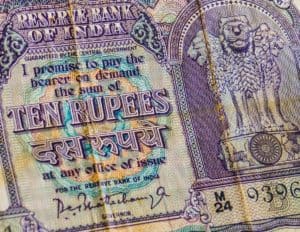 India-based non-for-profit organization, the National Institute for Smart Government (NISG), has reportedly proposed issuing a digital Indian rupee in its draft National Strategy on Blockchain.
India-based non-for-profit organization, the National Institute for Smart Government (NISG), has reportedly proposed issuing a digital Indian rupee in its draft National Strategy on Blockchain.
A central bank digital rupee, or CBDR, would be issued and managed on a permissioned (private) blockchain network, where the country’s governmental departments would be operating the transaction validator nodes, which is similar to how private versions of Ethereum, like JPMorgan’s Quorum, are operated.
The NISG says that India’s government intends to issue a statement of intent regarding the use of blockchain or distributed ledger technology (DLT) and plans to support the nascent sector as it continues to expand and innovate.
NISG says that its proposals aim to “unlock the value of the data in the hands of citizens,” rewarding residents for sharing personal data related to finance, telecommunication, and healthcare.
The CBDR could potentially address the existing disconnect between the nation’s approximately 1.2 billion mobile connections and only 582 million bank accounts. This is a huge gap that could be filled by digital currencies such as Bitcoin (BTC), which the Indian government might finally be prepared to address.
The nation’s central bank, the Reserve Bank of India (RBI), had banned local individuals and firms from selling or buying cryptocurrency in 2018, however, the nation’s Supreme Court is presently reviewing further hearings on this matter.
The RBI clarified earlier this month that cryptocurrencies are not completely banned in the country. The regulator’s comments reportedly came in response to concerns and questions raised by the India’s Internet and Mobile Association.
India’s crypto ban applies only to the institutions and companies that fall under RBI’s regulatory remit, which includes all local banks.
In July of last year, a leaked draft bill indicated that a ban on the use of all cryptocurrencies in the country was being considered, which the Indian government is still currently discussing.

